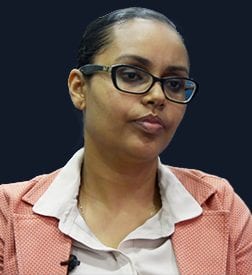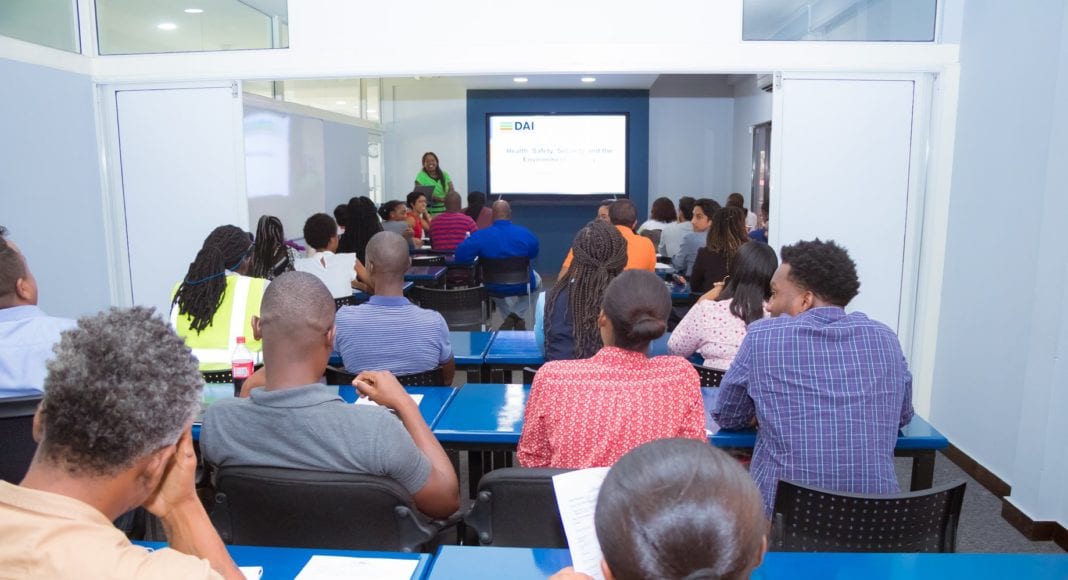The Center for Local Business Development (CLBD) is continuing its push to improve the capabilities of Guyanese companies to tap into opportunities in the emerging oil and gas sector. A study has been conducted in this regard, which is intended to guide the Centre’s efforts to further improve the capacity of local firms.
CLBD’s Deputy Director Dr. Natasha Gaskin-Peters said to date, there are over 2600 Guyanese businesses on their Supplier Registration Portal–the platform used by operators and other businesses in the sector to announce opportunities to local companies for potential contracts.

CLBD has been engaging in training activities with these companies, despite the challenges presented by the pandemic, using virtual platforms. “… some of the work that we are presently doing with them include our training programmes…so we continue to have the seminars in Health, Safety, Security and the Environment,” Dr. Gaskin-Peters said. “We have our offshore oil and gas course as well as the procurement course, and those are presently being offered virtually.”
The Deputy Director said the Centre is also offering business courses and continues to conduct its mentorship programme.
According to Dr. Gaskin-Peters, two of the businesses with which the Center is working with in terms of capacity building have recently become ISO 9001 certified through the mentorship program. “… we continue to work with the firms in the ISO 9001 Management System as well as our HSSE Management System programme for which we have about 198 local businesses,” she explained.
Recently, the Center completed an Economic Baseline Study to accurately determine the capacity of local businesses for tapping into opportunities in the oil and gas sector. The findings of the study will guide CLBD’s future capacity building initiatives.
According to the Deputy Director, “That study was done in order to understand Guyana’s macro economy. It would have covered four sectors in that regard. So those include the real, the fiscal, the monetary as well as the external sector.”
Additionally, CLBD did a cost of living study across several regions, including region two, four, six, seven and ten, and as part of that exercise, it also calculated economic multipliers for Guyana as well as local content multipliers.
“The study was conducted in order to understand where Guyana’s economy stood prior to first oil and to get a better understanding of where the local businesses specifically stood in order to inform, of course, the programmes that the Center would offer in order to continue to build the capacity of those local Guyanese businesses,” she noted.
Further, Dr. Gaskin-Peters divulged that in excess of 1000 surveys were conducted with local businesses using a variety of methods including the collection of secondary data and intensive field work across the various regions of Guyana, taking into consideration the informal economy within the country.
“The Center always does gap analysis in order to see where the gaps are, where the needs of the local businesses are so that we can continue to tailor our programmes,” She said. “So, when we would have started back in 2017, we did an initial survey and this would have guided our programmes over the last three years in terms of the training programmes, the mentorship programmes that we have.”
These programmes would have been capitalised upon by many businesses, she highlighted, adding that “they now need to move on to higher levels to gain other international certification to go more deeper into their HSSE, ensuring things like their policy are in place [and] things that are documented are being implemented.”
The Deputy Director said the study will help to inform how the Center transitions over the coming years in terms of its continued support to local businesses. The CLBD official also reminded that thus far, 21 companies have utilised the ISO mentorship programme with nine companies completing the programme and six of those becoming ISO 9001 certified.



